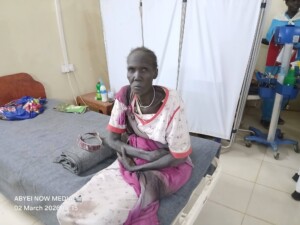Undersecretaries to temporarily run Sudan Ministries
On Wednesday 1 December, Prime Minister Abdallah Hamdok issued Decree No 616 for 2021, by which he assigned undersecretaries to run the 20 federal ministries until new, technocrat ministers have been selected.
During the coup d’état on October 25 led by Gen Abdelfattah El Burhan, Commander-in-Chief of the Sudan Armed Forces (SAF) and Mohamed ‘Hemeti’ Dagalo, Commander of the paramilitary Rapid Support Forces, the government was dissolved. Prime Minister Abdallah Hamdok was put under house arrest.
 Gen Abdelfattah El Burhan and Prime Minister Abdallah Hamdok signed a political agreement on November 21 (SUNA).
Gen Abdelfattah El Burhan and Prime Minister Abdallah Hamdok signed a political agreement on November 21 (SUNA).
On Wednesday 1 December, Prime Minister Abdallah Hamdok issued Decree No 616 for 2021, by which he assigned undersecretaries to run the 20 federal ministries until new, technocrat ministers have been selected.
During the coup d’état on October 25 led by Gen Abdelfattah El Burhan, Commander-in-Chief of the Sudan Armed Forces (SAF) and Mohamed ‘Hemeti’ Dagalo, Commander of the paramilitary Rapid Support Forces, the government was dissolved. Prime Minister Abdallah Hamdok was put under house arrest.
The military Ministers of Interior Affairs, Lt Gen Ezzeldin El Sheikh, and Defence, Maj Gen Yasin Ibrahim, kept their positions.
On November 21, Hamdok was reinstated at the Presidential Palace in Khartoum, following the signing of a political agreement with El Burhan to return the country to democratic transition in terms of the 2019 Constitutional Document.
The two parties agreed that “the partnership between civilians and the military is the guarantor of the stability of Sudan, the enforcement of the partnership, and the formation of a civilian government with independent national competencies (technocrats)”, and ensures the transfer of power to an elected civilian government at the end of the transitional period.
In continuing protests, civil disobedience actions, and Marches of the Millions, the Sudanese express their rejection of a military-civilian partnership, and call for a full civilian government.
The officials (16 men and four women) assigned as acting undersecretaries are:
Abdallah Omar, Ministry of Foreign Affairs
Ghanim El Tayeb, Ministry of Justice
Mohammed Abdallah, Ministry of Energy and Oil
Mohamed Saeed, Ministry of Minerals
Dawelbeit Abdelrahman, Ministry of Irrigation and Water Resources
Batoul Abbas, Ministry of Industry
Abubakr El Bushra, Ministry of Agriculture
El Mayer Jaafar, Ministry of Animal Resources
Amal Saleh Saad, Ministry of Commerce
Hisham Abuzeid, Ministry of Transport
Ihlam Mahdi, Ministry of Investment and International Cooperation
Haisam Ibrahim, Ministry of Health
Hanan Ibrahim, Ministry of Education
Mohamed Zein, Ministry of Higher Education and Scientific Research
Souad El Tayeb Hassan, Ministry of Labour and Administrative Reform
Abubakr Abulgasim, Ministry of Development, Roads and Bridges
Abdelrahim Yagoub, Ministry of Social Development
Adel Hasan, Ministry of Communications
Abdelati Abbas, Ministry of Religious Affairs and Endowment.
Ayman Saeed, Ministry of Sports
The following day, December 2, the acting undersecretary of the Ministry of Justice, in implementation of the directives of the Prime Minister, cancelled all appointments and transfers of legal staff and consultants that took place at the ministry following the October 25 military coup.











 and then
and then